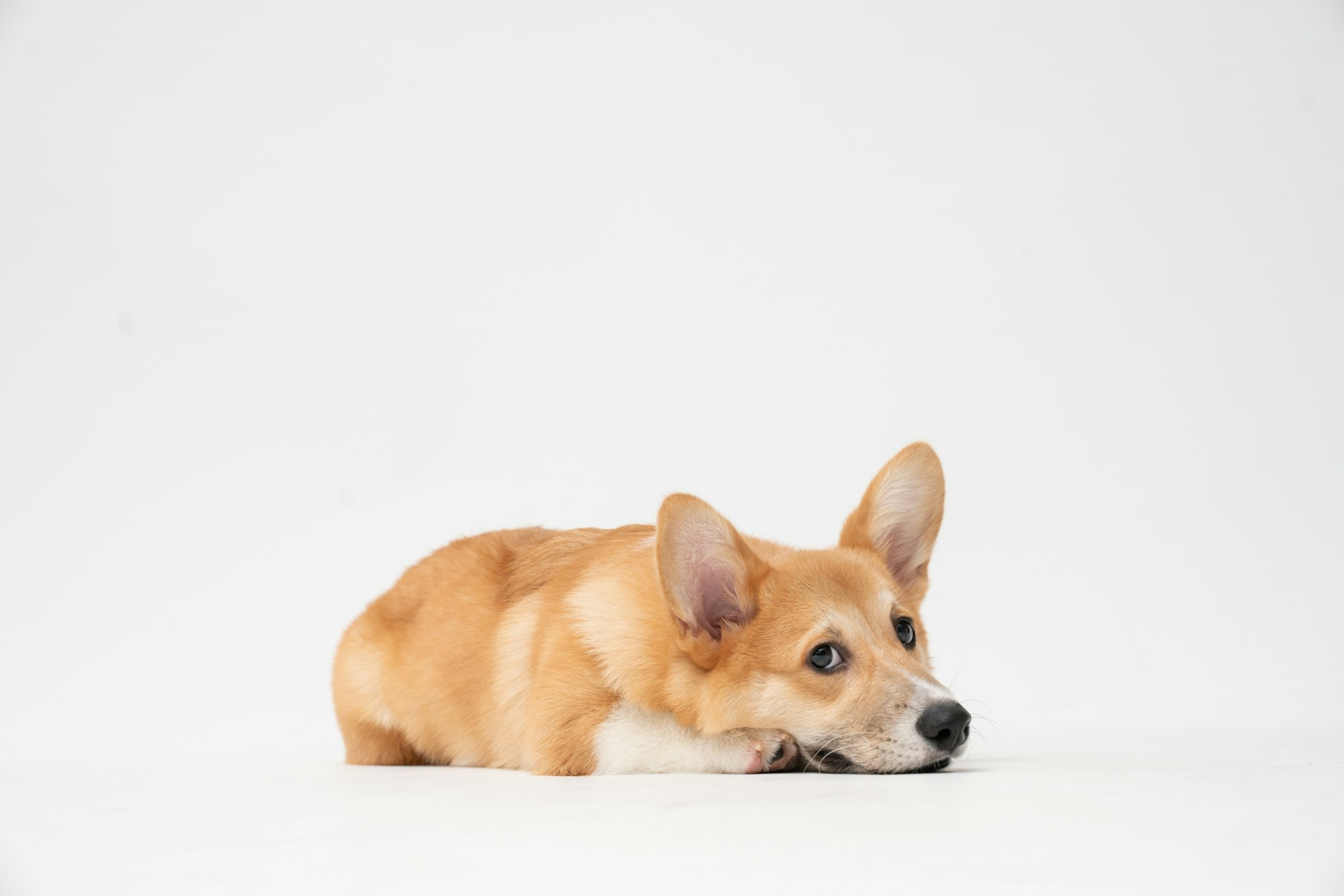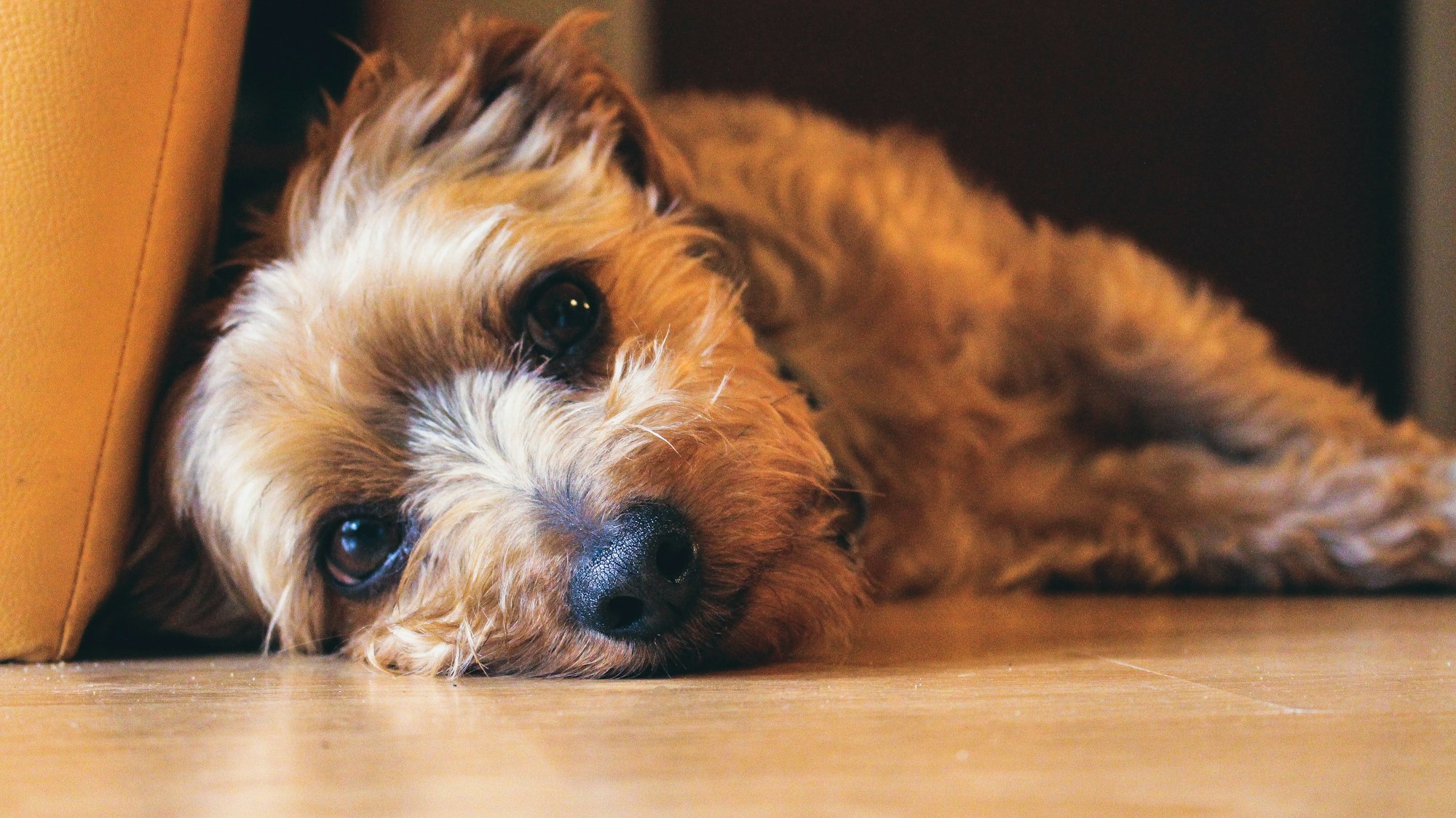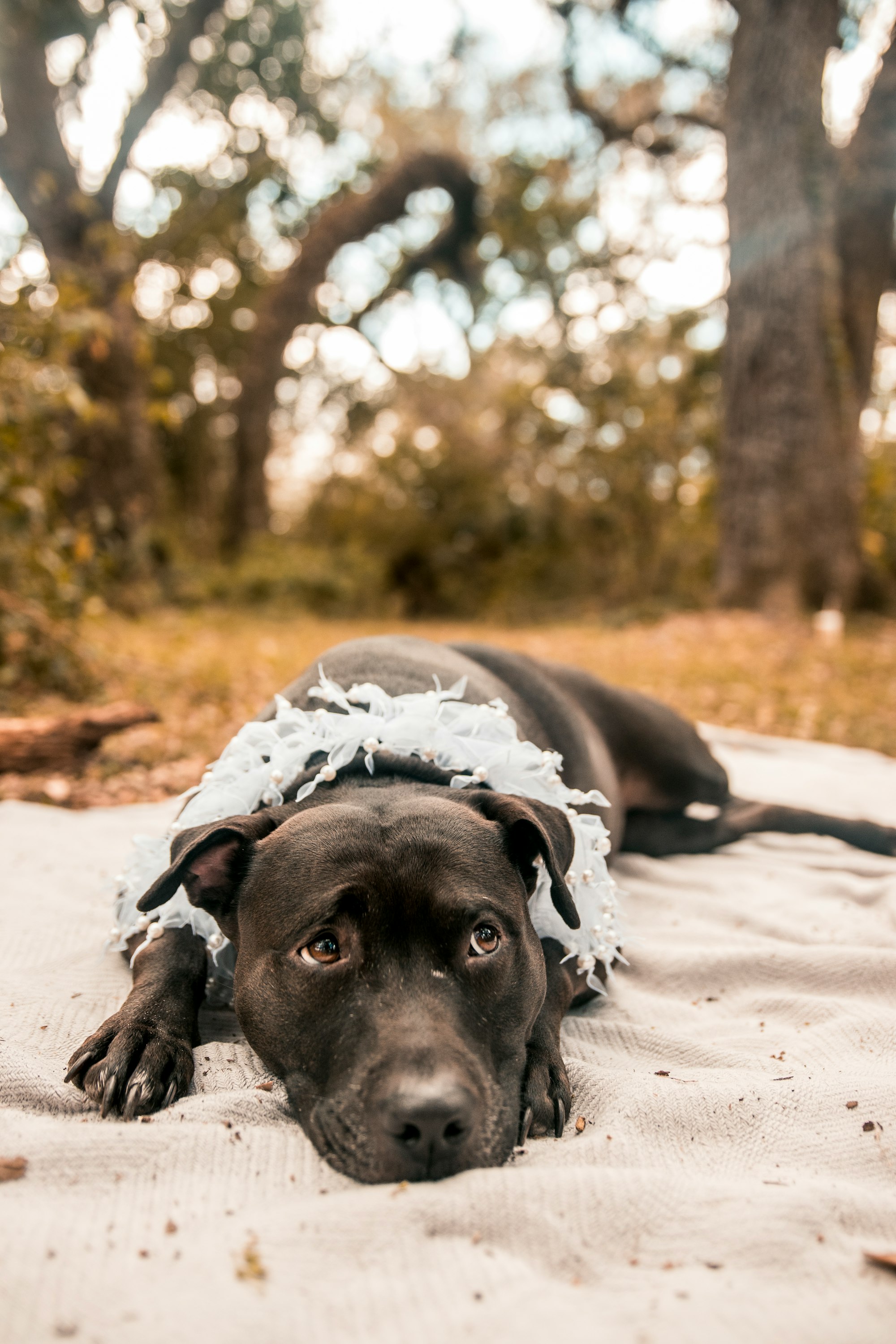Every pet owner grapples with a mix of excitement and guilt when planning a vacation. While the idea of taking a break and rejuvenating is enticing, leaving behind our furry companions can be heart-wrenching. A common concern among dog owners is how their beloved pet will perceive their absence. "Will my dog think I abandoned him?" is a question that has haunted many, as they imagine their dog's confusion and longing.
This article delves into the canine psyche, exploring the emotional dynamics and perceptions of dogs, and offers insights into how our pets might truly feel when we pack our bags and head out.

The Emotional World of Dogs
Dogs are more than just pets. They are family members, our confidants, and emotional barometers, always tuned into our feelings and moods. So, it's natural to wonder, will my dog think I abandoned him when I go on vacation?
Our Furry Friends and Their Emotional Depth
Dogs are emotional creatures. They possess a range of feelings, from joy and happiness to anxiety and sadness. Think about the last time your dog danced around with that wagging tail when you came home. It's not just about food or a walk; it's genuine happiness.
Conversely, remember that time you left for work, and he gave you the saddest eyes? That's emotional depth right there.
Dogs and The Concept of Time
But do dogs understand the concept of time in the same way humans do? It's a topic of much debate. While a weekend getaway might seem short to us, to a dog, especially one that isn’t used to its owner being away, it could feel much longer.
Imagine you're a kid, waiting for the school bell. Even though it's only an hour, it feels like forever. This might be how our pets feel when we're gone.
The Fear of Abandonment
Separation anxiety is real. A trip might raise the question: does my dog think I've abandoned him? Some dogs might indeed feel left behind. They might associate your packed bags with prolonged absence. Their whining, the pacing, or even the destruction of home items is their way of coping. It's heartbreaking to think they might see our vacation as abandonment.
For instance, my friend Laura went on a two-week vacation. When she returned, her Golden Retriever, Benny, had chewed through three cushions and was exhibiting signs of distress like flea bites on dogs. She found that using dog probiotics and melatonin for dogs helped calm Benny's anxiety when she left for short periods after that.
Ensuring Your Dog Knows You're Coming Back
Communication is key. Okay, I get it, dogs don't speak human. But they understand tones, gestures, and routines. Before leaving for an extended period:
- Stick to routines: Regular feeding, walking, and playtimes can offer comfort.
- Familiarity: Leave behind an old t-shirt or a familiar toy.
- Gradual changes: Try not disappearing suddenly. A short trip, then a longer one helps them adjust.
A friend once used pill pockets for dogs, placing a treat inside, and would give it to her pup every time she left the house. It turned her leaving into a positive experience.
Care Options While You're Away
Considering boarding? It's a popular choice, but it's essential to understand its pros and cons. Boarding can be an adventure for some dogs but stressful for others.
Another option? Dog sitters. They provide companionship in familiar surroundings. Moreover, modern technology offers a great solution. Setting up video calls might seem over-the-top, but hey, if it works, why not?
I recall a story about a Labrador named Duke. When his family went on vacation, they left him with a close friend. To ensure his dew claws didn't grow too long during their absence, the friend would often play with Duke, checking his health, including looking out for things like flea bites on dogs.
This friend was a veterinarian who believed in innovative treatments, and he often spoke about the wonders of dog stem cell therapy. This not only ensured Duke was in good hands but also provided him with a mini-vacation of his own!
How Dogs Perceive Absence
Ever wondered why dogs are so elated when we return, even if we just stepped out for five minutes? It's because dogs don't perceive time the same way we do. For them, it's less about the length of time you're gone and more about the joy of the moment when you return. The absence amplifies the joy of reunion.

Preparing for the Separation
Every time you leave, there's a way to make it easier for your pooch. Here are a few tried-and-tested strategies:
- Desensitization: Begin by leaving your dog alone for shorter durations, slowly increasing the time. This process helps reduce anxiety over time.
- Distractions: Toys that challenge your dog mentally can be a great distraction. Puzzle toys or toys that dispense treats over time can keep them engaged.
- Safe space: Create a space where your dog feels safe, be it a corner of the house or a crate if they're crate-trained. This will be their go-to place when they feel anxious.
Consider Jenny's story. She was about to leave for a 10-day work trip. Her Dachshund, Max, was prone to separation anxiety. She began preparing a month in advance. Each day she would leave Max with a toy that had been smeared with a little peanut butter inside, creating a delightful distraction for him. She also introduced him to a cozy nook in her bedroom with a blanket that smelled of her.
The Importance of Consistency
For pets, especially dogs, consistency is comforting. If you're planning to be away, ensure that whoever is looking after your pet maintains a routine similar to what your dog is used to. This includes feeding times, walk times, and even bedtime.
Remember Susan's Beagle, Daisy? While Susan was away on vacation, she had her neighbor check on Daisy. She provided a schedule and even marked her calendar with notes like "time for Daisy's pill pockets for dogs" to ensure her pet’s routine remained unchanged.
Psychological Support for Dogs
Sometimes, dogs might need more than just familiar surroundings and routines. They might need psychological support. This doesn't mean sitting them down for a therapy session, but more about tools and products that can help soothe their nerves. Calming sprays, soothing music playlists designed for dogs, or even products like melatonin for dogs can be used to reduce anxiety. Always consult with a veterinarian before introducing any new supplement or treatment.
In a Dog's Shoes
Imagine if roles were reversed. You're in a world where everyone else is a giant. You don't speak their language, but you understand emotions, tones, and gestures. You've formed an unbreakable bond with one of these giants, and suddenly, they vanish.
It might seem confusing, even scary. But then, when they return, the joy is unparalleled. It's this roller-coaster of emotions that our dogs go through.
The Journey Ahead
While vacations are a break for us, for our dogs, it might feel like an eternity of uncertainty. By understanding their emotional needs, preparing them for our absence, and ensuring they're cared for while we're away, we can minimize their anxiety.
In the vast world of dog care, from understanding flea bites on dogs to exploring innovations like dog stem cell therapy, the emotional well-being of our pets remains paramount. And when we take that extra step to make them comfortable, our bond with them only deepens.
Because at the end of the day, aren't our dogs more than just pets? They're family. And family looks out for each other, no matter how many legs they walk on.

The Role of External Stimuli
Dogs are highly sensitive to their environment. This sensitivity isn’t just limited to their immediate surroundings but extends to what they eat, hear, and even smell.
For example, introducing dog probiotics into their diet before and during your absence can ensure their gut health remains optimal. A balanced gut can lead to reduced anxiety. Many pet owners don’t realize the direct connection between gut health and a dog's behavior, but they're intricately linked.
Creating Memories, Not Absences
You might wonder, "Is there a way to ensure my dog doesn’t feel left out?" Well, there is. Before heading out, spend a day doing all of your dog's favorite activities. Be it a trip to the park, a long walk, or just some extra playtime, make it special. These positive moments can act as buffers for the time you'll be away.
Consider the case of Michael and his Border Collie, Rex. Before Michael left for a business trip, he dedicated a day solely to Rex. They played fetch, visited the beach, and even had an ice cream treat. Rex had a day full of memories, which not only tired him out (a tired dog is a content dog!) but also left him with a positive association, even during Michael's absence.
Backlink Wonders: The Secrets Behind Good Dog Health
While separation anxiety and emotional wellness are essential, let's delve into a quick diversion to ensure our pets' physical health is also at its peak. It's amazing how many innovations and products are out there, assisting dog owners every day.
Ever heard of pill pockets for dogs? These ingenious products make administering medication a breeze. No more chasing your dog around the house or trying to force a pill down their throat. It's care blended with convenience.
Then there's the evolution of treatments like dog stem cell therapy. This groundbreaking procedure has been a game-changer in treating various ailments, from joint issues to more severe health conditions. It's the dawn of a new era in veterinary care.
Furthermore, with the rise of various environmental factors, there’s an increase in issues like flea bites on dogs. Fleas can be more than just a nuisance; they can lead to health issues if not tackled promptly.
Lastly, ever wondered about the mystery called dew claws? While they might seem like a dog's redundant thumb, they have their own set of functions and care requirements. Keeping an eye on them, especially when you’re away, ensures that your dog doesn't face any discomfort.

The Role of Technology
Amidst understanding our dogs' emotional and physical needs, technology has gracefully stepped in to bridge the gap between anxiety-filled separations and the assurance of safety. Enter the Fi dog collar, a technological marvel that's rapidly becoming a favorite among pet owners.
Ensuring Safety During Absences
Worried about your dog’s whereabouts while you’re away? The Fi dog collar comes equipped with real-time GPS tracking. If your dog somehow escapes the yard or slips out with the sitter, you can track their exact location. In a world where the emotional safety of our dogs matters, their physical safety is paramount. Knowing your dog's whereabouts eases the mind, ensuring that even when you're miles away, you're still connected.
Creating Memories, Not Absences
Recall the idea of spending a memorable day with your pet before leaving? Now, imagine if you could track all the fun places you've been with your dog. The Fi dog collar, apart from being a safety device, acts as a memory tracker, documenting the various places you've explored with your furry friend. These 'routes' can be shared with your dog sitter while you're away, suggesting favorite spots your dog loves.
Technology Meets Health
Apart from issues like flea bites on dogs or the importance of dog probiotics, there's the overarching concern of our dog's physical activity. Is he getting enough exercise? Too much? The Fi dog collar tracks activity levels, giving insights into how active your dog has been. This is especially helpful when you're on vacation. You can check in on their activity, ensuring they're getting the right amount of exercise even in your absence.
Conclusion:
In conclusion, our canine companions undoubtedly form deep emotional bonds with us, and their reactions to our absences can be varied, often influenced by their individual personalities, past experiences, and the environment they are left in. While it's natural for owners to feel guilty or concerned about leaving their dogs behind, it's essential to remember that with proper preparation and care—such as leaving them with a trusted caretaker or in a reputable boarding facility—dogs can manage short separations quite well.
Furthermore, the joyful reunion upon return is a testament to the enduring bond and love that exists between an owner and their pet. So, while your dog might miss you, with the right measures in place, feelings of abandonment can be mitigated, ensuring your pet remains happy and secure until you come back.
Frequently Asked Questions (FAQs)
Do dogs understand the concept of time like humans do?
While dogs don't perceive time in the exact way humans do, studies suggest they can differentiate between shorter and longer durations of time. However, they might not grasp the concept of days or weeks in the same way we do.
How can I prepare my dog for my absence to reduce their anxiety?
Gradually acclimate your dog to longer periods of separation before your vacation. Ensure they have familiar toys and bedding. If using a boarding facility or pet sitter, introduce them to this new environment or person ahead of time.
What are the signs that my dog is experiencing separation anxiety?
Common signs include excessive barking or howling, destructive behaviors, pacing, and accidents in the house despite being toilet trained. Some dogs might also show decreased appetite or signs of depression.
How long is too long to leave my dog alone or under someone else's care?
While short trips (a day or two) might be easier for your dog to handle, longer absences can be managed with proper care. Always ensure that someone trustworthy is looking after your dog, giving them the attention, exercise, and care they require.
Will my dog remember me after a long vacation?
Absolutely! Dogs have a strong memory when it comes to their owners. While they might be initially surprised or overly excited upon your return, they certainly remember and recognize their beloved human companions after an extended absence.

